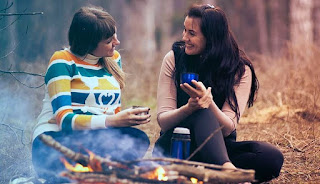So, you're autistic.
Who do you tell? When? How? What will happen, as a response?
Unknowns are scary enough for most people. For autistic people, often it's far scarier. Our social circles are often smaller to start with, and we may have grown up in a world that has wanted to see our naturally-different social communication as 'rude'. The thought of losing a friend or partner can be a huge thing.
Responses from others do indeed vary.
For me, a diagnosis was a fantastic thing, overall. It enabled me to know more about myself. To seek out my own people. To embark on a journey with teams to get good information out there, wherever we can. But it was not without cost, at times.
Who responded well? For me, I was very fortunate in a way to be in an autistic family, so it was affirming for me, and for those around me in the home.
Most friends and colleagues weren't in the least surprised, and coped beautifully.
Some were a bit shocked, as they hadn't expected that news, and edged away, but recovered. Although I think one or two are still in a bit of a state of shock....
Others pretended they were adapting to the news, but then turned away. I found out more about them through that than anything else. That what they wanted wasn't me. It was a masked version of me. That's not OK in any friendship or relationship, to want the person to be something they are not. Autistic people don't mask our identity as a way to lie to others. It's out of fear of ostracism, fear of targeting, fear of loneliness. That mask can be difficult to drop after years or decades of keeping it in place. But the clues of our autistic identity will always have been there.
One or two colleagues and contacts had ancient myths of autism and truly thought it was some weird combination of mental health crisis situation and psychopath, which is actually hilarious since it's pretty much the exact opposite of that. They caused serious damage in their own personal hysteria. So avoiding further contact with people who turn it into nastiness can be really important for health and wellbeing for us.
But, generally, it was great.
Does everyone in my life know? For me, yes. But I'm a national figure, so it would be difficult to hide it now.
Not everyone knows everything, though, for sure. In other areas of marginalisation, very few know. Very selectively. That's a personal choice.
For some people, 'coming out' as autistic is a dangerous thing. Prejudice and hate, misunderstanding and anxiety might result in lost jobs, for example. That should never happen, in a world that should be cherishing generally honest,loyal specialists. But it does, sometimes. There can be a risk of being further targeted by predators, for some. So that has to be thought about too.
What of a marriage or partnership, though? A close romantic relationship of some kind? What happens when one partner gets a diagnosis?
It's a variable. For many, it's a relief for both people. A better way to understand one another. An explanation for why the autistic partner finds some things so hard. A reason why they may miss unspoken clues from one another on such a regular basis. A chance to rethink how to navigate things.
For some, it's a new reason to hate. And a reason for the autistic person to have to think carefully about whether they want such a response in their lives. A good relationship counsellor who is trained on modern autism (not ancient myths around lack of empathy, rigid behaviour etc), is opften important in decision making, if so.
Both people need to learn each others' language. Autistic social communication is naturally different. Autistic responses to social events are naturally different. So are our responses to the environment around us, to sudden changes of plan that may lead to unknown sensory and social overload and a dreaded, painful brain event (meltdown or shutdown). We're right to be sometimes wary, to be cautious, to be reflective of what we can and cannot do. And a partner who trusts and respects that is vital in our lives.
For some, it's a chance to find our herd, our people. To forge new relationships online with other autistic individuals. To find ways to share hobbies, interests and romantic life with people who can understand us because they speak the same basic language. And for others, it's a good way to explain difference and share life with non-autistic allies; partners who cherish who and what we are, and enable us to thrive in ways that work for both.
As with all things in life, individual decisions are important.
Stay safe.
Look for those who love you for you who are, whether as friends or as deeper partnerships.
Those are people to be cherished.
